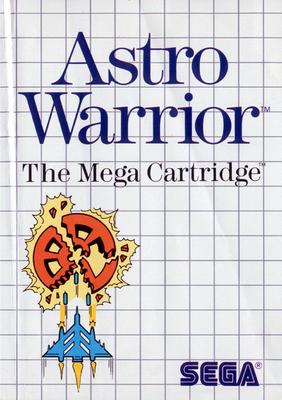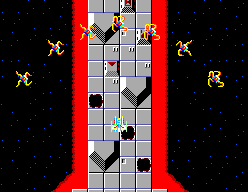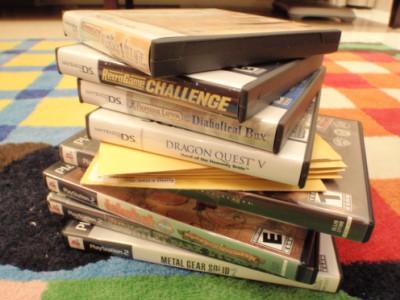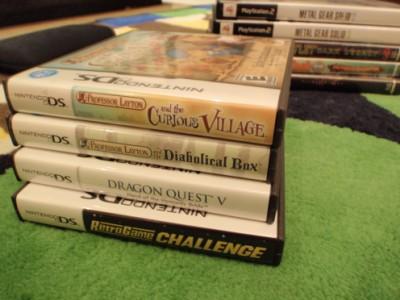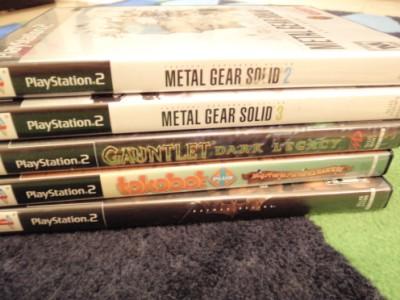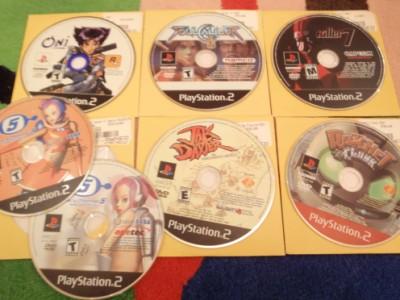on the defiance of expectations in Epic Mickey
I love it when a game defies my expectations sufficiently to make me uncomfortable. If a game can make me feel discomfort, there's something worth considering there--something that merits deeper understanding. There are things that a game can say about the player that couldn't be said in any other medium, and sometimes the message is all the more effective when I'm caught vulnerably by my own assumptions.
My first experience with this kind of discomfort came during my first playthrough of Mass Effect 2. Near the end of the game Shepard--the protagonist and player character--has accumulated a band of compatriots toward a final mission to stop the Reapers; but just before that final mission, the ship's crew is abducted by the Collectors.
Mass Effect is a role-playing game, and understanding genre tropes is an important aspect of interpreting a work and its impact. Many fantasy role-playing games have a similar plot point: the hero has completed his preparations. He is near the end of his journey. The stakes have never been higher, and the situation is urgent: Meteor is about to crash into Midgar; Gannon is about to destroy Hyrule; or, as is the case in Mass Effect 2, the Reapers are preparing to consume all life in the galaxy.
But role-playing games have another trope: the side quest. These are typically available throughout the game; but the moment before the final climactic mission is the last chance in most RPGs to finish up any side-quests that have been left undone. In Mass Effect 2, side quests take the form of "loyalty missions"--character-specific missions that provide additional backstory and inter-personal context for the members of your cohort. Completing these missions also improves an invisible but important loyalty stat which affects how team members respond to Shepard.
I'm a bit of a completionist, so I took this opportunity before the final mission to complete all of these loyalty missions. I did this all while I poked fun at the video game tropes on display: the big bad, poised and ready to attack; we, the player character, traipsing about the galaxy on unrelated menial missions. After all: Meteor won't crash into Midgar until the plot is ready for it; Gannon never will destroy Hyrule; and the Collectors will wait around until Shepard is good and ready to face them.
But that's not what happens. When I finally did embark on the final mission to stop the Collectors and rescue the crew, we found only Dr. Chakwas alive.
They're gone. All of them. I'm the only one left.
I watched them die. They were... processed--rendered down into some kind of raw genetic paste and pumped through these tubes.
What took you so long, Shepard? You could have saved them if you'd gotten here sooner!
Dr. Chakwas' words are true. While I was taking my time maximizing a gamified loyalty stat, the game was monitoring my activities after the abduction of the crew. Leave immediately, and you may save them all; but the longer you wait, the more of them die.
With this, the game defies trope, and punishes the player for approaching the work as a simple genre piece. In reality, Shephard would never meander about, but would prioritize the mission and the retrieval of the crew. But it's just a game, right?
But it is the fact that it is a game that enables this experience. A character in a book won't die because you waited a week to read the last chapter; but in my Mass Effect, we lost the entire crew: named characters with backstories and interactions that had developed throughout the game. And the consequences don't end there, either: Mass Effect is a three-part series, and the death of these characters carries on even into the next game.
Mass Effect 2 expects you to care about its characters; and, if you don't--if you just play it like a video game, expecting it to behave like other video games--it punishes you for it by taking those characters away.
But even then, I never would have expected to feel this same defiance of expectation from Epic Mickey.
Epic Mickey could hardly be more different from Mass Effect. It's a third-person platforming character action game with light adventure elements. It's a children's game, contrasted with media hysteria regarding Mass Effect's "mature" content. More immediately, Mass Effect is a good game; and I definitely wasn't enjoying Epic Mickey.
But I have kids, and those kids were excited about Mickey, so I was playing through it as a social activity with them. I really wasn't taking it seriously: jump on the platforms; paint the environment with the magic paintbrush; mash "A" when characters talk to you; make "progress."
Not too far into the game, I ran into a character called "Small Pete," a rendition of a classic Disney character, "Pete," who often serves as the antagonist of a Mickey Mouse story.
I spent years getting' along with gremlins. Only had to knock 'em around on occasion. Then, the ONE TIME I crash my boat into their village, they seem to think I'm some kinda villain.
Not that I give two hoots what they think, but it WAS an accident. And my ship's log will prove it.
Those little monsters won't let me near the wreck to get it, though. Hmm... I'll bet they'd let you.
I was immediately suspicious of Small Pete's story (assuming I paid it any mind at all, beyond just mashing "A"); but we got a quest objective and moved on.
I continued jumping between platforms, tagging the environment, and mashing "A," until we met Gremlin Shaky.

I smell treasure! You found it!
How's about you trade me that ship's log for a flashy new pin?
I still wasn't paying attention. Why would I? The platforming was mediocre. The characters were either flat or carbon-copies of each other. Each gremlin looks the same as all the others. So I interpreted this interaction with the same level of attention that I would pay to most collect-a-thon games:
"Oh, right. The ship's log. I guess I picked it up along the way. Pete wanted us to get that for him, right? What was that for, again? This must be the guy I'm supposed to give it to. And when I do I'll get a pin as a reward, eh? Ok, I guess it's a collectible, so I guess I'll do it."
Thank you very much. This will make excellent reading. Here's your pin.
But that wasn't all there was to it. Immediately after finishing the interaction I received a "quest failed" notification.

I kept playing, just accepting that I had failed the quest, and probably missed out on some minimal benefit. But something about the interaction bothered me. Small Pete seemed to be a character teetering on the edge of villany. He was willing to "knock 'em around on occasion"; but he seemed genuinely (if covertly) concerned with clearning his name. He wasn't a villain yet. He was a bully.
So you left my ship's log with those grubby gremlins, eh? Well, here's a little taste of what happens to those who cross me!
I had betrayed Small Pete. I hadn't done it out of malice. Worse: I had paid him no mind. He asked for help, and I ignored him. Eventually, I traded his name for a collectible pin I didn't even care about. In a literal sense, I had turned him into a villain: Small Pete had become a video-game boss, generating a combat encounter to punctuate the chapter.
I found myself considering what it would take to correct this mistaken path through the game's narrative. I had overwritten my save several times since I had given Pete's ship's log to Gremlin Shaky. I would have to start the game over from the beginning.
The very fact that I was considering it made me uncomfortable. I did not enjoy playing this game. But, for the sake of a fictional character as absurd as Small Pete, I was considering sacrificing some portion of my time in pursuit of his redemption.
I tell my kids that it's part of a parent's job to give them consequences that they can learn from and grow through, while protecting them from consequences that they can't recover from, if only for a time. In a small, but very real, way, Epic Mickey was that for me. I ignored a call for help. I was careless. A character was treated unjustly, and that injustice led him to embrace his own darker tendencies.
I never did go back and do right by Small Pete. In fact, I don't think I played the game again after that. I'm sure we were called down for dinner, and then distracted by another game I enjoyed playing more. But I still think about Small Pete, about the time I didn't pay enough attention, and about the consequences that might develop when I allow myself to become just a little bit more callous to the world around me.
